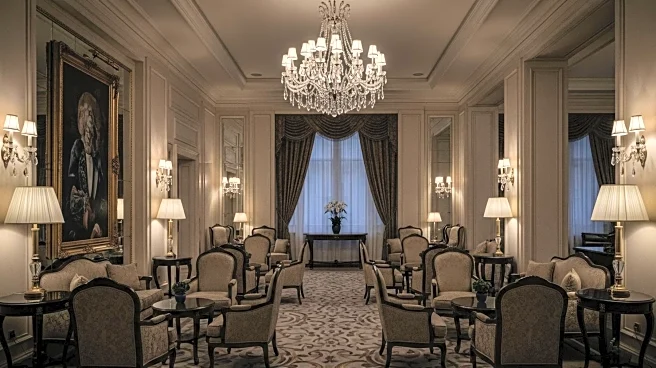What's Happening?
The U.S. hotel industry is experiencing a persistent decline in revenue per available room (RevPAR), marking the worst 10-week stretch since early 2021. According to recent data, RevPAR dropped by 0.7% in the week ending September 6, 2025, driven primarily by falling occupancy rates and a slight decrease in average daily rate (ADR). The Top 25 Markets (T25), including Houston and Las Vegas, have been significant contributors to this decline, with Houston facing challenges due to comparisons with last year's summer storms and flooding, and Las Vegas affected by a decrease in international travelers and a sluggish economic environment. Despite some markets like San Francisco showing RevPAR increases, the overall trend remains negative, with 84 markets reporting declines.
Why It's Important?
The ongoing decline in RevPAR is significant for the U.S. hotel industry as it reflects broader economic challenges and shifts in travel patterns. The decrease in international travelers, particularly in major markets like Las Vegas, highlights the impact of global geopolitical instability and economic slowdowns. This trend could lead to financial strain for hotel operators, affecting employment and investment in the hospitality sector. Additionally, the bifurcation in hotel class performance, with luxury hotels seeing growth while economy class hotels face declines, underscores changing consumer preferences and spending habits.
What's Next?
Looking ahead, the industry anticipates potential growth in the coming weeks due to 'clean calendar' periods, which are expected to be free from major disruptions. However, upcoming events such as Rosh Hashana and Yom Kippur, along with difficult comparisons due to past hurricanes, may impact travel and occupancy rates. Stakeholders in the hotel industry will need to adapt to these fluctuations and consider strategies to attract domestic travelers and mitigate the effects of international travel declines.
Beyond the Headlines
The decline in RevPAR also raises questions about the long-term sustainability of the U.S. hotel industry in the face of economic and environmental challenges. The impact of climate-related events, such as hurricanes, on travel patterns and hotel performance may necessitate a reevaluation of risk management and investment strategies. Additionally, the shift towards luxury accommodations suggests a potential widening gap in consumer spending power, which could influence future market dynamics.









